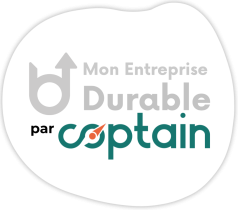Before you start reading
At Mon Entreprise Durable, we support CSR managers in their critical moments: awareness and commitment, audit and action plan, the implementation of 5 actions and certifications.

Key points of the article
The sustainability of public procurement in Switzerland is more than just a legal obligation; it’s a tremendous opportunity for CSR managers and company directors. By including sustainable development clauses in public procurement contracts, the Swiss authorities are paving the way for responsible purchasing practices that can transform the economic landscape.
This means that every company has the chance to stand out from the crowd by adopting sustainable strategies and meeting sustainability targets. By committing to these requirements, you not only meet regulatory expectations, you also position your company as an innovative and responsible leader. How do you go about it? Follow the guide!
Legal and regulatory framework
Sustainable public procurement in Switzerland aims to integrate responsible practices and achieve sustainable development objectives into public policy.
Federal Law on Public Procurement (LMP)
The Federal Law on Public Procurement (LMP) is the main legal framework governing governing public procurement in Switzerland. It requires contracting authorities to take sustainability criteria into account in their awarding processes.
The LMP thus enables public purchasers to include sustainable development clauses in their contracts. Ultimately, these sustainable development provisions are designed to encourage economic operators to adopt environmentally-friendly and socially-responsible practices.
Intercantonal Agreement on Public Procurement (AIMP)
The Intercantonal Agreement on Public Procurement (AIMP) complements the LMP by harmonizing public procurement rules between the Swiss cantons. The AIMP reinforces the sustainability requirements of public procurement in Switzerland by integrating sustainable development objectives into public supply and service contracts.
Sustainable development clauses in public procurement, as defined by the AIMP, oblige companies to comply with strict environmental and social criteria. The aim of this sustainable development policy for public procurement is to ensure that public procurement contributes to the achievement of Sustainable Development Goals (SDGs) defined by the United Nations.
Role of the Federal Office and the Federal Council
The Federal Office for Construction and Logistics (FOCL) and the Federal Council play a major role in implementing and monitoring sustainability policies for public procurement in Switzerland. The FOCL is responsible for drawing up guidelines and award criteria that integrate sustainable development objectives into public procurement.
For its part, the Federal Council ensures that sustainable development policies for public procurement – in line with its Sustainable Development Strategy 2030 – are applied consistently and effectively at all levels of public administration.
These institutions also ensure that those responsible for public procurement are aware of and trained in sustainable development issues, thereby guaranteeing that sustainability criteria are systematically taken into account in tendering processes.

Sustainable development objectives in public procurement
Integrating sustainable development into public procurement policies is now a fundamental requirement. Visit Federal Council and Confederation Purchasing Conference (CA) encourage sustainable public purchasing, focusing on economic, ecological and social impacts throughout the product life cycle. This aligns with Agenda 2030’s SDG 12, which aims to establish sustainable consumption and production patterns.
Contracting authorities must include sustainable development clauses in public procurement contracts, covering environmental environmental, social and economic aspects. These clauses aim to promote sustainable practices throughout the supply chain.
Over 30 organizations have already placed their trust in us as they make the transition to sustainability. What if it were your turn? Take action and start your CSR process with us!
Sustainable development clauses in public procurement contracts
Sustainable development lauses are integrated into calls for tender and public procurement contracts.
These clauses define the environmental, social and economic specifications that suppliers must meet in order to be eligible for a public procurement contract.
Common types of clause
Sustainable development clauses commonly used in Swiss public procurement contracts include :
- Environmental clauses: requirements in terms of energy efficiency, reduction of CO2 emissions, use of recycled materials or waste management.
- Social clauses: compliance with International Labor Organization (ILO) conventions, promotion of equal opportunity and inclusion.
- Economic clauses: encouraging innovation, supporting local SMEs and promoting the circular economy.
For example, the OFCL states in its Sustainability Report 2022 (p. 32) to have taken social aspects into account in the clauses of 18 out of 18 of its invitations to tender for goods and services in 2022, compared with 14 out of 14 in 2020.
These clauses are adapted according to the nature of the contract and the specific sustainability objectives set by the contracting authority.
Public supply contracts
The integration of sustainable development clauses is particularly strong in public supply contracts. They enable public authorities to :
- Promote the purchase of environmentally friendly and socially responsible products.
- Encourage innovation and the development of sustainable solutions by suppliers.
- Reduce the ecological footprint of public procurement throughout the product life cycle.
For example, the Swiss Federal Office for Buildings and Logistics (BBL) has developed specific award criteria for public supply contracts, incorporating sustainability aspects such as energy consumption, recyclability and production conditions.
In particular, the FOCL is committed to converting its vehicle fleet to all-electric, in line with its Sustainability Report 2022 (p. 37)This also applies to the excessive use of detergents in building cleaning, and to the recovery of all equipment from a building on disposal for reuse or spare parts collection.
Weighting of award criteria
Finally, awarding authorities must assign a specific weighting to each sustainability criterion, according to the relative importance of each aspect for the project in question.
In a public construction contract, for example, environmental criteria can be weighted more heavily to encourage the use of sustainable materials and environmentally-friendly construction techniques. The weighting must be clearly defined in the tender documents to ensure transparency and fairness in the evaluation process.
For further information on the subject of awarding contracts, the “Sustainability Monitoring Guide“explains in detail the weighting of award criteria during the strategic period 2021-2030.
Implementing sustainability in public procurement
Effective implementation of sustainability in Swiss public procurement requires a strategic approach and the right tools.
Here’s how CSR managers and company directors can effectively integrate sustainable development objectives into their practices.
Strategies for integrating sustainability
To integrate sustainability in public procurement, we advise you to adopt a holistic approach:
- Needs analysis: assess real needs in terms of products or services, considering their impact over the entire life cycle.
- Criteria definition: develop specific, measurable sustainability criteria, aligned with sustainability objectives.
- Staff training: ensure that purchasing teams understand sustainability issues and know how to integrate them into the tendering process.
- Dialogue with suppliers: engage in constructive dialogue with suppliers to raise awareness of sustainability requirements and encourage innovation.
Tools and resources
Several tools and resources are available to facilitate the integration of sustainability:
- The guide to public procurement in French-speaking Switzerland : This guide is the key resource for your public procurement questions in French-speaking Switzerland. In its latest edition, dated 1ᵉʳ May 2020, you will find, among other things, a method for assessing bidders’ contribution to sustainable development (see appendices Q5 and T5).
- The knowledge platform on sustainable public procurement (PAP) This is a reference work for questions relating to sustainable public procurement. It is available to interested purchasing departments at all federal levels.
- Sustainability Compass Online tool developed by the Federal Office for Spatial Development to assess the sustainability of projects.
- SNBS platform The Swiss Sustainable Construction Standard provides detailed criteria for sustainable construction projects.
- Specific to construction and buildings: the Coordinating Conference of the Construction and Buildings Departments of Public Building Owners (KBOB) provides a set of resources for the construction and the management real estate management.
Best practices and examples
Here are a few examples of best practice in sustainable purchasing in Switzerland:
- The City of Zurich has systematically integrated social and environmental criteria into its textile tenders. This initiative aims to ensure that products purchased meet high standards of sustainability, including requirements on suppliers’ working conditions, the use of environmentally-friendly materials, and the reduction of carbon footprints.
- The Canton of Vaud uses a sustainability assessment tool for all its public construction projects. This tool is used to analyze the environmental, social and economic impact of projects right from the design stage. Criteria assessed include energy efficiency, use of recycled materials and waste management.
- SBB Introduction of a supplier rating system including sustainability criteria.
Practical advice for companies
To meet the sustainability requirements of public procurement in Switzerland, companies need to adopt specific strategies and practices.
Preparing for sustainable tenders
Preparing for sustainable tenders starts with a thorough understanding of sustainability criteria. Here are some key steps:
- Requirements analysis: Read calls for tender carefully to identify sustainable development clauses in public procurement contracts. Understanding these requirements is crucial to submitting compliant bids.
- Documentation: Prepare documents proving your commitment to sustainability, such as environmental certifications, sustainability reports and case studies.
- Collaboration: Work with partners and suppliers who share your sustainability values to strengthen your proposition.
Development of an internal sustainability policy
A strong internal sustainability policy is essential to meet the expectations of public procurement markets. Here’s how to develop it
- Initial assessment : Assess your company’s CSR impact. Identify strengths and areas for improvement.
- Setting objectives: Establish clear, measurable sustainability objectives. These objectives must be aligned with the public market’s sustainable development missions.
- Financing : Depending on the geographical location of your head office, various public institutions offer financial support programs. These aids, which can take the form of subsidies or other types of assistance, are designed to facilitate and accelerate your CSR approach. They represent an interesting lever for companies wishing to strengthen their commitment to social responsibility.
- Action plan: Create a detailed action plan that includes specific initiatives, necessary resources and deadlines. Make sure this plan is communicated to all levels of the company.
Team training and awareness
Team training and awareness-raising are crucial to the successful implementation of sustainability initiatives:
- Training programs: Set up regular training programs to inform employees about sustainability issues and new public procurement requirements.
- Ongoing awareness: Organize workshops and seminars to maintain a high level of awareness and commitment among employees.
- Accountability: Appoint sustainability ambassadors within each department to ensure implementation of initiatives and act as a point of contact for sustainability issues.
To conclude...
The sustainability of public procurement in Switzerland represents a strategic opportunity for you, CSR managers and company directors. By integrating sustainable development clauses into your practices, you can not only meet legal requirements, but also position yourself as an innovative and responsible player.
This means adopting sustainable strategies, training your teams and developing a solid internal policy. By making sustainability a pillar of your business, you can strengthen your competitiveness while contributing to a more responsible future. Get involved today to turn these challenges into opportunities and make your company a market leader in sustainable public procurement.
Your goal is to obtain the EcoEntreprise certification ? Put your trust in a company that has gone through the same process. We can also assist you with B-corp, CSRD or Ecovadis.






